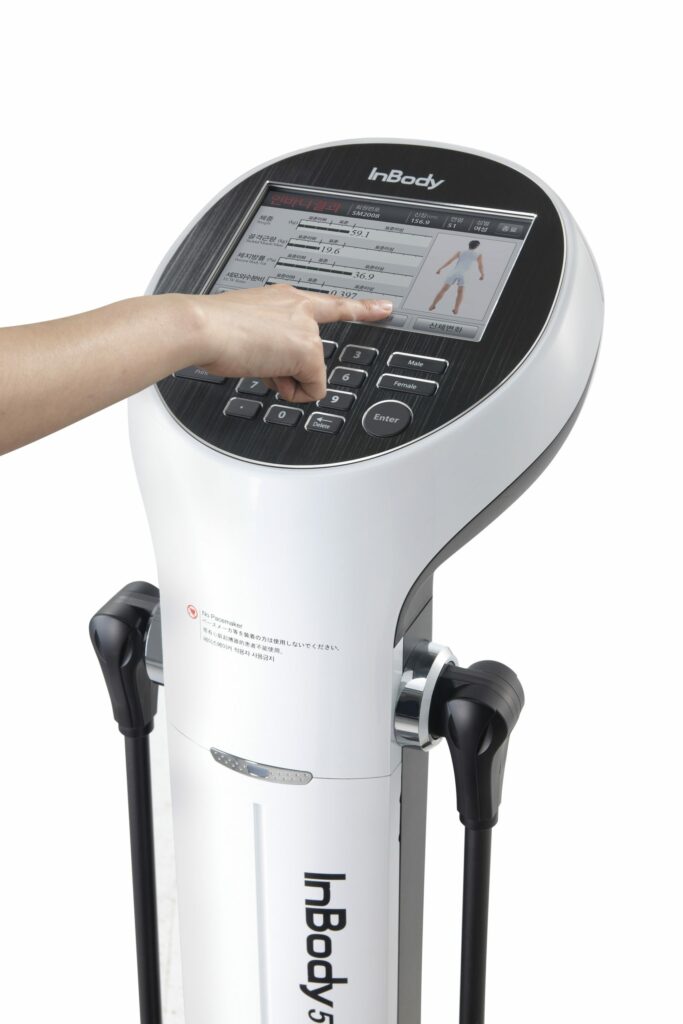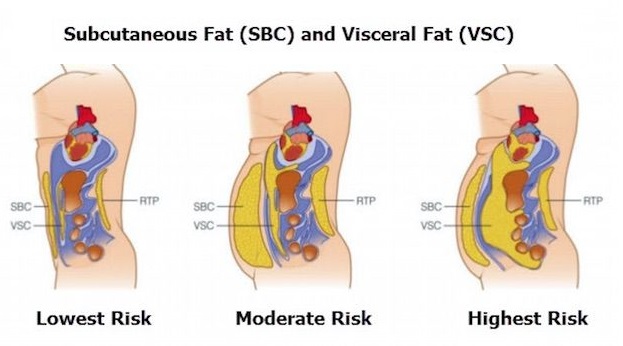
Now that StrengthSpace has an InBody 570 available to clients, you may wonder: “Why test body composition?” After all, many of us have a scale and a mirror, and these tools do give us valuable information about our health. But what they don’t tell us is how healthy we are on the inside. In this post, I’m going to discuss three key factors essential to long term health that scales miss.
Weight alone gives incomplete information.
Scales are useful tools if all we care about is weight. And when it comes to weight, what ultimately matters is energy balance. If we eat more calories than we need to survive, we’ll get larger. If we eat less then we need, we’ll get smaller. But what we won’t know is if the changes on the scale are coming from changes in muscle, fat, bone, organ, or water weight.
I’m going to suggest that weight isn’t what we should really be focusing on. It’s not that weight doesn’t matter, but it gives an incomplete picture. To keep track of the things that really matter, such as our health, functional ability, and appearance, we should focus less on what we weigh, and more on what makes up our weight.
In that sense, weight is a bit like income. In both business and personal finance, an increase in income is usually a good thing. Yet, there are plenty of cases where it might not be. If you take a new job with a 10% increase in pay, but your living expenses go up 30% due to relocating, you might be taking home less at the end of the day. Conversely, if you take a 10% pay cut, but your new remote job allows you to slash living and commuting expenses by 30-40%, you might be financially healthier as a result. Income is just one piece of the overall picture.
Without accurate information, we can become frustrated.

Similarly, the scale gives us an incomplete view of our health, and this can lead to a lot of frustration. A real client of mine started her health and fitness journey by getting a body composition test at nearby Old Dominion University’s exercise physiology lab. After a few months of dietary modification, weight training, and improved sleep hygiene, she was frustrated because her scale was showing no weight loss.
But when she went back for a follow-up body composition test, she had actually lost several pounds of fat and gained even more muscle. She weighed the same, but she was objectively healthier and stronger, and she looked very fit! Once she found out what was really happening, her motivation to stay the course was rekindled.

This is the key takeaway: accurate information can help us stay on track to meet our goals, or course correct when necessary. Incomplete information (just weight) can leave us frustrated enough to fall off the wagon.
So let’s get to the three key factors that the scale misses, and that body composition can show us.
Factor 1: Muscle Mass for Function & Longevity
When it comes to what exercise and diet can influence, there are a few key components to aging well and in good health. The first is muscle mass. Without it, we lose bone density, our metabolisms slow down, and we eventually become too weak to participate in life or to safely live alone. Muscle mass is a very strong predictor of longevity, especially in hospitalized individuals. Losing muscle mass simply correlates with a loss of function as we age, and leads to frailty. Keeping track of our muscle mass through body composition testing helps ensure we are doing the right things dietarily (adequate protein), and informs how we approach our strength training.
Factor 2: Visceral Fat for Disease Risk
Feeling defeated when you are actually doing well is bad. And thankfully, accurate body composition helps prevent this so we stay motivated. But what about the opposite problem? There are many people who are seemingly “lucky” because they never gain weight. But for some naturally thin people, organ fat can fly under the radar. This is often called “skinny fat.” and excess organ fat brings all the risks of obesity even if weight and body-mass index are normal.

This brings us to the second key part of body composition: visceral fat, or the fat that surrounds our organs. This key symptom of metabolic damage is something we can track to keep an eye on our risk for systemic disease. The relationship between obesity and disease is clear, but there are many exceptions (healthy obese and metabolically sick thin people) which prevent it from being an air-tight relationship. But now we understand that it it isn’t body-fat in particular that predicts risk, it is specifically visceral fat.
Factor 3: Fluid Levels for Energy and Lifestyle Feedback
When our cells have adequate electrolytes like sodium and potassium, it is easier for them to hold water within their membranes. And this proper cellular hydration is necessary for optimal performance. It can effect energy levels day to day, recoevery, and overall health.
Conversely, retaining water in between our tissues is the equivalent of whole-body swelling. You know how your wedding ring feels tighter after a night of too many drinks and indulgent foods? Well that is an example of how diet and lifestyle factors can lead to inflammation and whole body water retention. With a proper body composition assessment, you’ll actually get insights into not just how much water is in your body, but how much of it is within, versus around your cells.
This can help guide your understanding of whether your diet and sleep hygiene are effective, and can also help you understand exactly what is accounting for any weight changes you may be experiencing. If you are simply hydrating better, you may weigh more, but this added weight may be a good thing which improves your mood, energy levels, and overall health!

Why test body composition? To make better health decisions!
No matter which category you fall in, having an accurate picture of your muscle mass, organ fat, and body water can help you avoid many of the pitfalls of the scale. By avoiding both frustration from not seeing your progress, and blissful ignorance from not recognizing a problem, you’ll be equipped to make the best decisions for your health when you have accurate information about your body composition.

